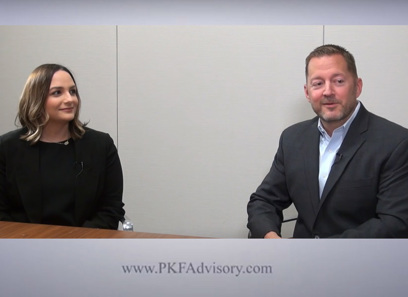M&A Outlook: The Role of Economic Factors in Shaping Global Mergers and Acquisitions
M&A Outlook: The Role of Economic Factors in Shaping Global Mergers and Acquisitions
Blog Article
Checking Out the Legal and Economic Elements of Mergers and Acquisitions Purchases

Summary of Mergers and Acquisitions
Mergers and purchases (M&A) stand for a considerable section of company strategy, with countless transactions occurring worldwide every year. These tactical maneuvers are mainly intended at improving competitive advantage, expanding market share, and achieving operational harmonies. M&A tasks typically come under 2 unique classifications: mergers, where two companies combine to create a brand-new entity, and purchases, where one company purchases an additional, hence maintaining its identity.
The inspirations behind M&A transactions are varied. Firms may go after these techniques to diversify their item offerings, go into new markets, or utilize technical developments (Economic factors influencing M&A). Additionally, M&A can offer as a way to eliminate competitors or gain access to important intellectual home
The process of M&An entails a number of stages, consisting of target identification, settlement, assimilation, and appraisal. Successful purchases require detailed due diligence to analyze financial health, operational abilities, and possible liabilities of the target business. Furthermore, cultural alignment in between combining entities plays an important duty in guaranteeing a smooth change and long-term success. As businesses navigate the intricacies of M&A, recognizing the strategic imperatives and potential difficulties is important for accomplishing preferred end results in a significantly competitive landscape.
Legal Framework and Conformity
Recognizing the legal framework and compliance requirements bordering procurements and mergers is essential for browsing the intricacies of these purchases - Economic factors influencing M&A. These processes are governed by a myriad of regulations at both federal and state levels, which intend to make sure fair competition, shield stakeholders, and maintain company administration requirements
Key regulatory bodies, such as the Federal Profession Commission (FTC) and the Stocks and Exchange Compensation (SEC), impose antitrust laws and securities guidelines, respectively. Firms should conduct detailed due persistance to identify any kind of potential lawful obstacles, consisting of regulatory authorizations or anti-competitive concerns essential for a successful purchase.
Moreover, compliance with disclosure commitments is important, particularly when public business are entailed. This includes declaring called for documentation and giving precise details to shareholders and regulative authorities.
Cross-border M&A transactions introduce additional layers of intricacy, as varying legal requirements and governing frameworks have to be navigated. Engaging lawful advise with competence in mergings and procurements is important to make sure adherence to relevant laws and to reduce risks. Therefore, comprehending these lawful structures not just facilitates compliance but likewise boosts the chance of a effective and effective merger or acquisition.
Financial Valuation Methods

Among the most common strategies are the Discounted Capital (DCF) evaluation, which approximates today value of predicted future cash flows, and the Comparable Firm Evaluation (CCA), which reviews a business's worth family member to comparable companies within the exact same industry (Economic factors influencing M&A). In Addition, Criterion Transactions Evaluation (PTA) analyzes historical purchase data to establish benchmarks for evaluation
Another substantial technique is the Asset-Based Evaluation, which concentrates on the firm's internet possession value, offering a substantial evaluation of worth by thinking about both existing and lasting possessions and liabilities. Each strategy has its toughness and restrictions, frequently varying in applicability relying on the nature of business and the sector context.
Inevitably, employing a mix of these economic valuation techniques can produce a comprehensive understanding of a firm's value, aiding to guarantee that both buyers and vendors engage in fair and fair transactions during the intricate procedure of mergers and acquisitions.
Due Persistance Refine
Performing comprehensive due persistance is important to uncovering vital information about a target firm before settling a merger or acquisition. This procedure includes a comprehensive review of the target's economic, functional, lawful, and governing elements. The primary aim is to recognize prospective risks and liabilities that may impact the purchase's worth or post-merger performance.

In addition, social due diligence assesses the compatibility of original site the merging entities' corporate cultures, which is critical for an effective combination. The due diligence procedure needs collaboration amongst different stakeholders, including lawful advice, financial advisors, and market experts, to ensure an alternative understanding of the target company.
Inevitably, the findings from due persistance notify negotiation approaches and may lead to modifications in the purchase cost or terms, thereby guarding the rate of interests of the acquiring celebration and laying the groundwork for an effective merging or purchase.
Post-Merger Assimilation Difficulties
While effective mergers and acquisitions frequently produce substantial synergies and growth chances, the post-merger combination stage offers a myriad of challenges that can undermine these advantages. One of the leading issues is the cultural integration of the merging entities.
One more significant difficulty exists in aligning processes and systems. The integration of inconsonant IT systems, functional practices, and financial reporting can be complex and taxing, often causing functional interruptions. Additionally, the failure to interact successfully during this phase can result in complication and false information amongst customers, employees, and stakeholders.
Financial combination likewise positions challenges, specifically in integrating economic policies and bookkeeping practices. This imbalance can cause variances in financial coverage, influencing stakeholder confidence and market perception.
Last but not least, governing compliance issues might occur, necessitating thorough interest to legal needs. Resolving these difficulties promptly and purposefully is necessary for realizing the expected benefits of a merging or purchase, ensuring long-lasting success and stability.
Final Thought
Finally, the complex landscape of procurements and mergings necessitates a detailed understanding of both lawful and financial aspects. Adherence to governing structures guarantees conformity and mitigates anti-competitive risks, while robust monetary evaluation techniques offer essential insights into business well worth. A comprehensive due persistance process is necessary for recognizing potential challenges, eventually causing extra reliable post-merger integration. Successful navigating of these components significantly enhances the likelihood of achieving preferred results in M&A deals.
The complex landscape of mergings and purchases transactions demands a thorough understanding of visit our website both lawful frameworks and financial evaluation methods. Governing bodies, such as the FTC and SEC, enforce strict compliance needs click to secure against anti-competitive actions, while durable financial evaluation methods are necessary for precisely assessing a firm's value. Effective deals call for detailed due diligence to assess economic health and wellness, operational abilities, and potential responsibilities of the target business.Financial due persistance takes a look at historical and projected economic statements, cash money flow evaluation, and tax conformity. Adherence to regulative structures guarantees conformity and alleviates anti-competitive risks, while robust economic appraisal strategies offer critical insights right into company worth.
Report this page